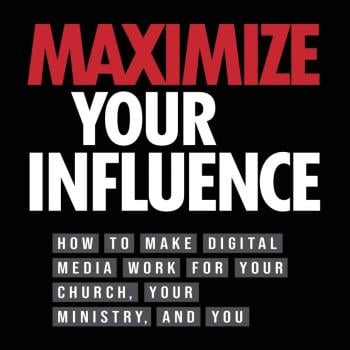One of my favorite friends is Bub. He is a registered Republican and always has been. Since Bub is about ten years older than I am, that constitutes quite a while now. It's something of a shock when people learn of his preferred political label, because he's a flaming save-the-world liberal. Suggest to him that Republican might not be the most appropriate or convincing label for himself, and he flies into a temper, shouting that he can call himself a Republican if he feels like it.
Okay, Bub. You can call yourself that. Just don't expect me to. For the rest of you, if you ever have the pleasure of getting to know Bub (and it is a pleasure, despite the temper), you'll smile, and you won't call him a Republican, either.
While Bub is a curious singleton, such anomalies are not so rare. Another example, a much different one, is Christian Identity. This group has a convoluted and risible rationale for the label it gives itself. And a common response from self-identified Christians is that the Christian Identity guys aren't "really Christian." I've heard similar statements by various Christians about the Westboro Baptist folks, about the Mormons, even about the Catholic Church, all of whom will tell you, of course, that they really are.
Within the history of Heathenry, a familiar character is Olaf Tryggvason: king, devout Christian, murderer. It's easy to say that he wasn't "really Christian," and I've heard Christians say it. But he thought he was, and I'm pretty sure he would happily have killed you for saying he wasn't.
Within more recent Heathen history, we have a case of Heathen Convicts A and B killing Heathen Convict C in prison because A and B thought C didn't take Heathenry seriously enough, that C wasn't "really Heathen." After this hit the news, I heard several Heathens say that A and B weren't "really Heathen."
Really.
We classify plants and molecules and stars and many other things with great success. When we talk about them, those labels help us figure out what to do next. When talking about people and their beliefs and behaviors, these classifications aren't so successful. Somebody gives a label, either for himself or for somebody else, and off we go, often to nowhere useful.
Due to the tax laws, I've been trapped into being the owner of a rental property since the mid-'80s. This is annoying on several fronts, one of which is the job of choosing renters now and then. I've noticed that if someone makes a point of applying a religious or political label to himself during a rental interview as though that label is automatically a good thing, that person will be a problem to me later on. They will either stiff me for several months rent, or destroy the property, or both. At the end of our relationship, they swear they will make it all up to me, usually invoking again whatever label they used at the beginning. Then they disappear and I never hear from them again. Are they "really" whatever they say they are? Can that question even be answered? And if it can, is the answer useful?
I was pretty far along in life before I acquiesced to religion. I still have mixed feelings about it. But I have experienced that satisfying sensation when another part of my life clicked into place. The stories I have to tell wouldn't have come to me or through me without it. There is yet another touch point for my morality. And I enjoy and appreciate my relationships with my gods, and with some others who say they know them, too. It's good to have friends who understand what I'm talking about.
Yes, I call myself Heathen, and I don't hide it. Neither do I wave that label around as some kind of credential. Labels are sometimes good starting points, although where that point turns out to be isn't always clear except in retrospect, even when the label is familiar. As for the labels themselves, whether Heathen or any other, I learned a long time ago that they are a guarantee of just about nothing.
8/10/2011 4:00:00 AM





